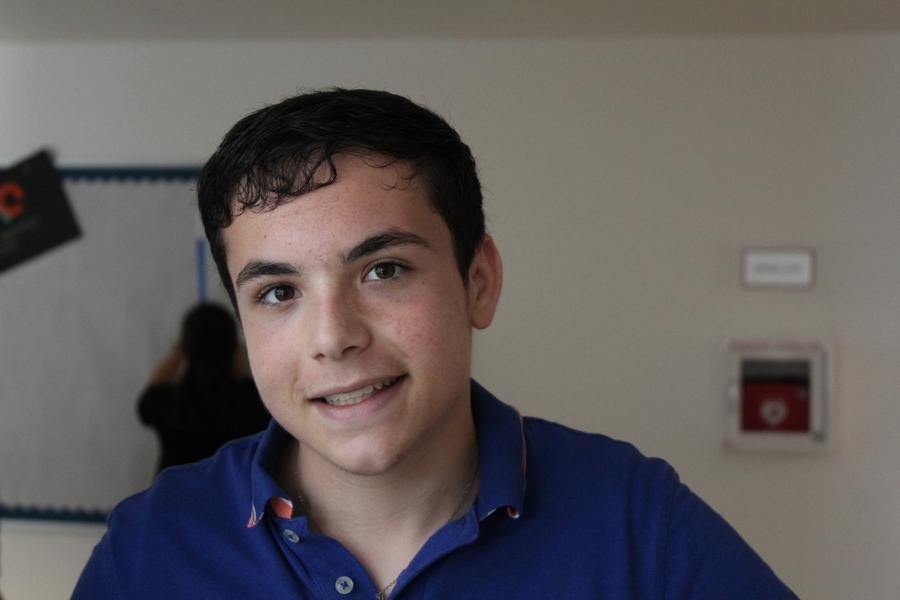Page Three: When normal days aren’t normal, there’s a problem
January 24, 2017
“What now?” I ask as I rub my eyes and check my phone to see the ever-so-common Shalhevet good morning greeting, “Special Schedule.” Five minutes shaved off of every period one day, 10 the next or even entire classes sent to the chopping block for a multitude of reasons I find difficult to fathom.
In the month of November alone we had a basketball tournament, a music video filming, parent-teacher conferences, a teacher in-service day and a domestic violence assembly, all of which required missed class time. In fact, despite a spoken promise not to cancel any periods for the Glouberman Tournament, first period on Friday, Nov. 11, was cut. This is in addition to an already two-day break for Thanksgiving and parent teacher conferences.
For Shalhevet, these events – each of them understandable on its own – come on top the Jewish calendar in general. Most years, either September or October, or in some cases a mixture of both, are challenged with a large cluster of holidays that cancel school. Around eight or nine days for Sukkot, two for Rosh Hashanah, one for Yom Kippur and a half day for the fast of Gedalia, all of which together significantly strip away our class time. This year, October included a whopping low of six school days, three of which were cut short due to fasts and holiday preparation.
Traditionally, November has been the month that allows school to resume and assume a normal, quiet and uninterrupted series of normal school days. This year however, November was home to endless stream of special schedules and consequently morphed into a month that rivaled September and October.
The second semester offers similar scheduling hurdles in the Jewish calendar – Purim and the fast of Esther; Pesach, Lag B’Omer, Yom Hashoah, Yom Ha’atzmaut and Yom Hazikaron – and Presidents’ Day, Memorial Day, Senior Ditch Day and Color War, which last year was two days long.
I am not arguing to cancel vacations or special school days. Rather, I am pointing out that the administration must be more frugal in deciding what is valuable enough to miss class for.
This is not just for the sake of our students, who struggle with a schedule that may place their tests weeks after they have learned the material, but also for the sake of our teachers.
My experience has been that teachers don’t always receive much prior notice as to when their classes may be shortened or cancelled. Last year, in a first-time breach of tradition, teachers were not even told when Color War would be, leaving tests scheduled far in advance, homework assignments and project due dates to the will of the wind.
Late last year, after a grueling week of nonstop special schedules, I saw on my Schoology calendar a notification that Monday would be “a normal day of school.” I was shocked, it had actually come to the point where we had to schedule a normal day of school because such a day had become so rare when in reality it should be the most common.
I think it is our duty to start carefully examining what requires a special schedule and what extra programs need to be cut in the name of compassion and, ultimately, our greater education. Most of our vacations are necessary for religious reasons, so we have to be very careful about the rest.
Maybe Advisory can be used for grade-wide assemblies. Maybe we can take a closer look at how much time certain activities take. The Rosh Chodesh schedule for example, even with its longer davening, provides students with a longer break than necessary.
Moreover, school publicity should not ever be used again as a valid reason to miss class as it was on Nov. 21 for the shooting of the music video, no matter how beautifully that video comes out. And teachers need to be apprised of these programs weeks, not hours or even days, in advance when possible, as last-minute test changes are fair neither to them nor the student body.
If nearly every day is special, then no day is. It has come to a point where special schedules cause eyes to roll not just among the faculty but among the student body as well.
For the sake of our education, it is vital that we can all wake up in the morning and be pretty confident that it will probably be a “normal” day at Shalhevet.













